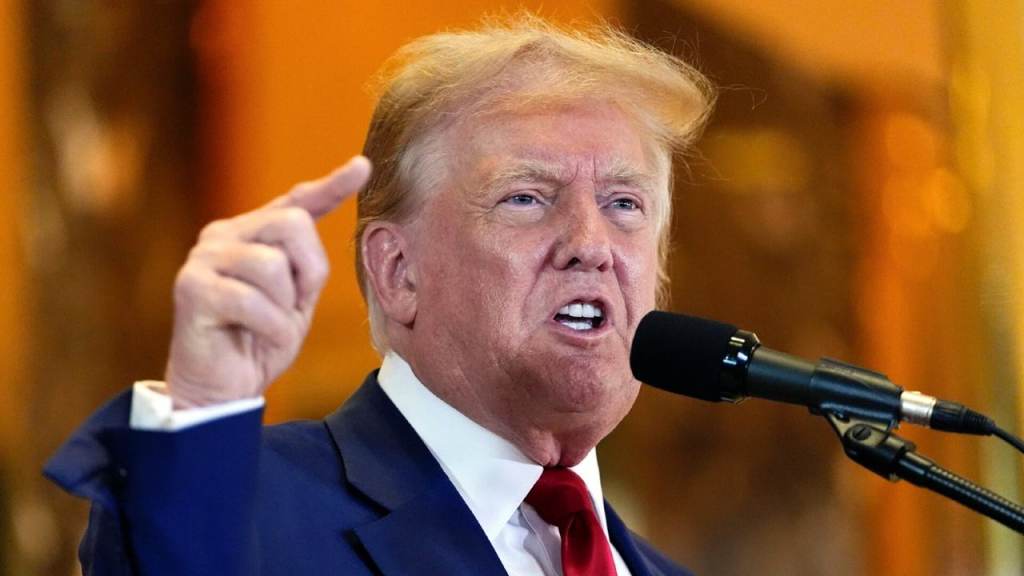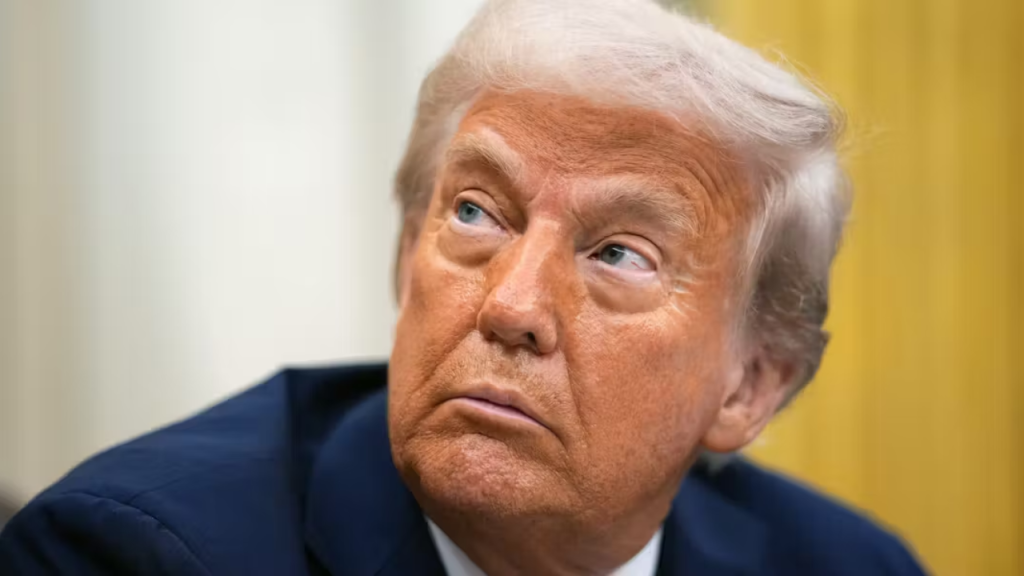
The Trump administration is preparing to impose tariffs on semiconductors and pharmaceuticals, moving forward with national security investigations into imports from those sectors, as revealed in notices published Monday in the Federal Register.
This move adds to the turbulence in the global trade landscape, which has already been shaken by a flurry of tariff announcements, rollbacks, and changes from the Trump administration over the past two weeks, triggering sharp reactions in financial markets.
Although semiconductors and pharmaceuticals were initially exempt from the 10% tariffs imposed on most imports starting April 5, Trump had stated they would be subject to separate levies.
On Sunday, he mentioned that the tariff rate on semiconductors would be revealed in the coming week, though he left room for certain companies to receive exemptions.
The filings indicated that investigations under Section 232 of the Trade Expansion Act of 1962 began on April 1. This provision allows the president to impose trade restrictions in the name of national security.
The U.S. remains heavily dependent on Asian nations like Taiwan for semiconductors and relies significantly on India and China for pharmaceutical ingredients and production.
Trump views this foreign dependency as a national security concern and sees tariffs as a way to bring more manufacturing jobs back to the U.S.
However, drugmakers argue that such tariffs could lead to shortages and reduced access to medications, and even if manufacturing shifts back to the U.S., it would take significant time.
Just days ago, the administration granted exemptions on some technology products—such as smartphones, computers, and flat-screen TVs—from earlier tariffs on Chinese imports.
These exemptions offered a brief reprieve for the financial markets, with stocks finishing higher on Monday.
Meanwhile, China has escalated its response, raising tariffs on U.S. goods and halting exports of critical rare-earth minerals and magnets essential to U.S. industries, including defense, semiconductors, and electric vehicles.
Trump also said he’s considering temporary exemptions on his 25% auto tariffs to help companies adjust production to U.S. facilities.
Speaking from the Oval Office on April 14, Trump acknowledged that automakers relying on parts from Mexico, Canada, and other countries need time to transition. News of potential relief pushed up shares of Ford, General Motors, and Stellantis.
China’s suspension of rare-earth mineral exports has raised alarms among U.S. firms. According to The New York Times, ports in China have halted shipments while the government drafts new rules that may block supplies from reaching American companies.
James Litinsky, CEO of MP Materials—the only U.S.-based rare-earth mining company—warned that the country’s future supply chain is now at risk. Although these minerals aren’t rare in nature, the ability to process them at scale is highly concentrated in China.
Amid the intensifying trade war, Chinese President Xi Jinping met with Vietnamese leader To Lam in Hanoi on April 14, signing agreements to deepen cooperation on supply chains, railways, AI, and green energy.
Trump reacted sharply, accusing China and Vietnam of conspiring to “screw the United States,” though he stopped short of blaming them directly.
Financial markets, battered by the fast-moving tariff decisions on countries like China, Canada, and Mexico, as well as products ranging from steel to autos, got some breathing room with recent rollbacks. Still, investor anxiety remains high, with concerns over inflation and a looming recession.
Boosted by tech exemptions and possible auto tariff pauses, U.S. markets rebounded Monday: the Dow gained 312.08 points (0.78%) to close at 40,524.79, the S&P 500 rose 42.61 points (0.79%) to 5,405.97, and the Nasdaq added 107.03 points (0.64%) to reach 16,831.48.
In Beijing, China’s government is treating the situation like wartime, according to Reuters, with officials cancelling vacations and working around the clock.

The Chinese government has launched a media campaign using historical nationalist rhetoric, including clips of former leader Mao Zedong proclaiming, “We will never yield.” Beijing insists the U.S. started the trade conflict and says any negotiations must be based on equality and mutual benefit.
As part of broader efforts to counteract the impact of U.S. tariffs, Xi called for tighter economic cooperation with Vietnam, which has signed dozens of new trade agreements in response to escalating U.S. duties.
Meanwhile, in southern Africa, Lesotho—facing Trump’s steepest tariffs at 50%—has granted Elon Musk’s Starlink a 10-year license to provide satellite internet service.
Civil society groups have criticized the move, calling for greater domestic ownership. Lesotho hopes to renegotiate the tariffs, which are currently under a 90-day suspension.
Trump ally and billionaire investor Bill Ackman urged a three-month pause on China tariffs, praising Trump’s flexibility and suggesting that the break would allow U.S. companies to adjust their supply chains and allow China to strike a fair deal.
Ackman warned that if China doesn’t engage meaningfully, Trump could impose harsher measures after 90 days.
Economic experts, however, are warning of tough times ahead.
According to a Wolters Kluwer Blue Chip Economic Indicators survey conducted April 4–7, economists now predict the U.S. economy will grow only 0.8% in 2025, a sharp drop from last month’s 1.7% forecast.
They also estimate a 47% chance of recession, up from 25% in February.
A separate poll by the National Association of Business Economics, conducted after Trump announced the 90-day tariff pause and tech exemptions, forecast similar stagnation.
Respondents expect just 0.7% growth this year. Over half rated the economy as either “fairly bad” or “very bad,” and a majority believe it’s deteriorating.
